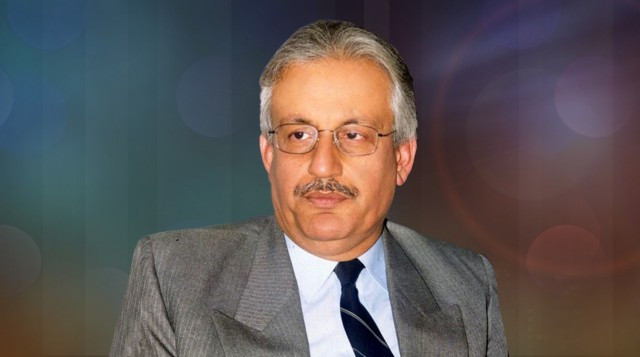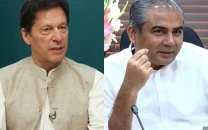SC examines judicial appointment method

SC examines judicial appointment method
The 17-member bench headed by Chief Justice Iftikhar Chaudhry was hearing Khan’s arguments challenging certain provisions of the 18th constitutional amendment. Khan’s key argument was that the judiciary must be consulted before making judicial appointments.
“The 150-year-old tradition of consulting with the judiciary has been eliminated with the new process of appointing judges,” observed Justice Khalilur Rehman Ramday. “According to the old system laid out in the constitution, the government was bound to act upon the advice on the chief justice for appointing judges,” said Chaudhry. “But as per the new judicial commission, consultation with the Chief Justice of Pakistan is not necessary in appointing judges,” remarked Justice Shakirullah Jan.
Khan argued that there were many flaws in the 18th amendment, to which Justice Jawad S Khwaja replied: “This issue would not have risen had the parliament resolved the issue through debate.”
The discussion then turned to the composition of the judicial commission. Justice Asif Saeed Khosa took Khan to task for objecting to the inclusion of the law minister and the attorney general in the commission and not to that of a Pakistan Bar Council member. “Are you examining the lawyers in their personal capacities or as members of the PBC? If the latter, then the attorney general and the law minister are also PBC members,” reminded Khosa.
“The law minister and the attorney general are part of the government, which is why they shouldn’t be part of the judicial commission,” replied Khan. “I have no objection to a commission comprising judges.”
“Judges are under oath to keep confidential matters such as appointments under wraps whereas the attorney general or the lawyers’ representatives would not be,” mused Chaudhry.
Khan also spoke of the ambiguity in the process of appointing the chief justice and other judges of the Islamabad High Court. At this, Jan asked Khan whether an article could be struck down if there were ambiguity regarding its implementation. Here the chief justice quickly reminded all that the purpose of the hearing was to reduce problems, not to double them.
“We have to work to separate the judiciary from the executive,” said Khwaja. But the chief justice quickly reminded him: “We cannot include anything in the constitution; we can just interpret it.”
Soon after, the discussion veered towards the relative muscle of the parliamentary committee and the judicial commission. On Justice Ghulam Rabbani’s asking, Khan said the committee would be more powerful because, according to the 18th amendment, it is to take the final decision.
“Even if the judicial commission nominates a judge, the entire process will become politicised because the parliamentary committee will have to approve the nomination,” said Justice Tariq Pervez.
“Even the previous system of appointing judges gave us judicial appointments, which were inappropriate; how is one to find an ‘error-free’ system?” asked Justice Javed Iqbal rhetorically.
Here, the judges launched into an academic discussion about who was at fault. Significantly, Justices Saquib Nisar and Ramday pointed out, the Al-Jihad trust case was not implemented upon from day one by the judiciary itself.
Chaudhry directed the attorney general to take note of all the points raised in the discussion and to send them to the chairman of the parliamentary commission on constitutional reforms Raza Rabbani. The AG was also told to ask Rabbani about his availability to attend the proceedings and clarify these points.
The hearing was adjourned at the conclusion of Khan’s arguments; Barrister Zafarullah of the Wattan Party will present his formulations today (Wednesday). However, Khan has been asked to attend hearings till the conclusion of the case.
Published in The Express Tribune, July 7th, 2010.


















COMMENTS
Comments are moderated and generally will be posted if they are on-topic and not abusive.
For more information, please see our Comments FAQ